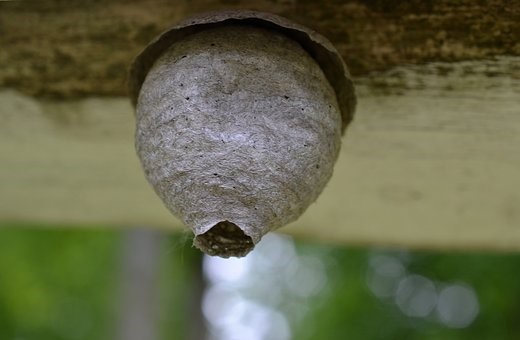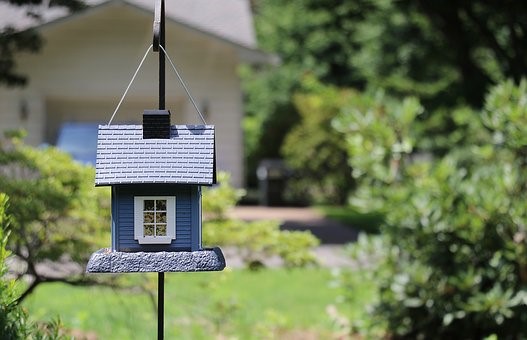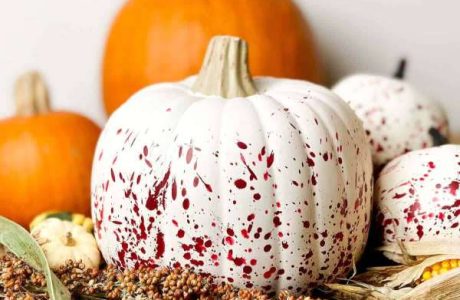
How to Keep Wasps at Bay While You’re Outside
When the weather is nice, I think it’s fair to say that most of us enjoy an evening
spent in the garden. Whether you enjoy a BBQ or a cheeky tipple, taking advantage
of the rare summer weather is a must! However, it can be easily ruined by the
presence of wasps buzzing around.
Wasps raise an alarm for many people, especially those allergic to their sting, and
they are generally unwelcome at most garden parties. So, let’s look at some of the
easy DIY tricks you can use to keep wasps at bay while you’re outside.
Wasps Hate Peppermint

Many of us enjoy the smell and taste of peppermint but there is arguably nothing wasps hate more. If you’re having a garden party, why not burn some peppermint candles and place them on tables around your garden?
Alternatively, you can add a mint plant to your garden. While a mint plant won’t be as potent as essential oils, it will deter wasps from getting too close.
Remove All Food Sources
Wasps are attracted to food, particularly during the spring and early summer when they help feed the queen bee who is emerging from hibernation. Therefore, if you leave food out in the open such as pet food, open garbage containers, or compost piles, wasps will swarm to these areas. What’s more, when wasps are searching for food in the summer their behaviour is inherently more aggressive.
Therefore, it is essential you remove all open food sources from outside and ensure you do not leave any uncovered foods in the open for long periods of time. This will reduce the number of wasps swarming your property as they will search for food
elsewhere.

Make a Fake Nest
For all your DIYers out there, making a fake nest to deter wasps from your property is extremely beneficial. Although you can buy fake nests, it is possible to make your own out of papier-mâché. Most predatory wasps will avoid making themselves at
home on your property if they spot another nest already there.
You can make a fake wasp nest but blowing up a balloon and gluing pieces of newspaper all over it. Once dry, pop the balloon inside and paint the nest grey – it really is that easy! Then all you have to do is hang the nest on the outside of your
property to let the wasps know your property is already inhabited.
Do You Have Wasps Nesting Near Birdhouses?

Wasps will try to live in birdhouses as they are sturdy and protected spaces, perfect as a home. However, this can scare away the birds in your garden.
To avoid this problem, simply line the under-roof area of the birdhouses in your garden with aluminium foil – you can use a staple gun to attach it. Alternatively, for a more natural solution you can rub soap on the under-roof area (ordinary soap will do) as one application of bar soap can last an entire wasp season.
Make Your Own Sugar Trap
Sugar and water traps are an effective way to trap the wasps in your garden and dispose of them. After all, wasps love sugar!
All you have to do to make your own sugar and water trap is take a pot and fill it with two and a half cups of water. Next, add four cups of sugar and place over the heat to warm slowly (gently stirring). Keep stirring until all sugar dissolves into the water.
This won’t take much time.
Once the solution has been left to cool, pour it into plastic bottles with inverted necks by using a funnel. It is important you do not let any sugary water slip down the side of the bottles as this can attract insects. Once the bottles have been filled with the
sugar solution, place around your garden.
Keep Your Backyard Free from Wasps
Despite the numerous ways wasps can benefit your backyard, they are pests and their stings can cause allergic reactions for many people.
If there are wasps in your garden that have built a nest a little too close for comfort, it is time to take action. However, before you make a drastic decision or use a toxic product, why not give these non-toxic, natural methods a go? The chances are that
our wasp deterrent suggestions will help keep wasps out of your way so that you can properly enjoy time in the garden.
If, however, removing the wasps from your garden is too difficult or could be dangerous, you must call for a professional wasp removal company.
Author Bio
Rachel Kerr is a professional copywriter, writing content for Ames Pest Control.
Rachel loves all crafty things and enjoys the independence of carrying out her own
DIY projects.




